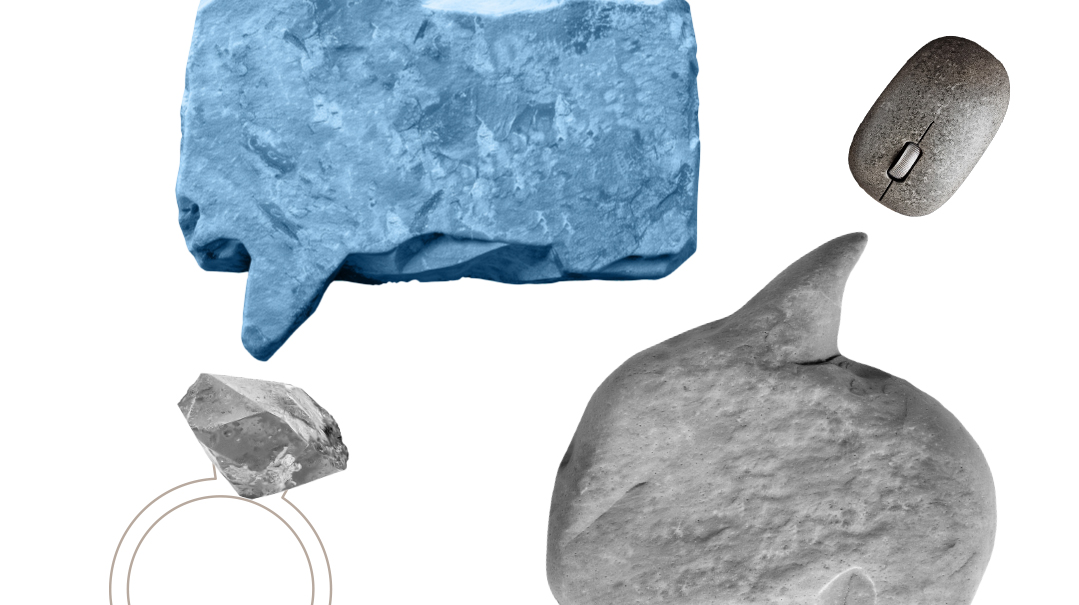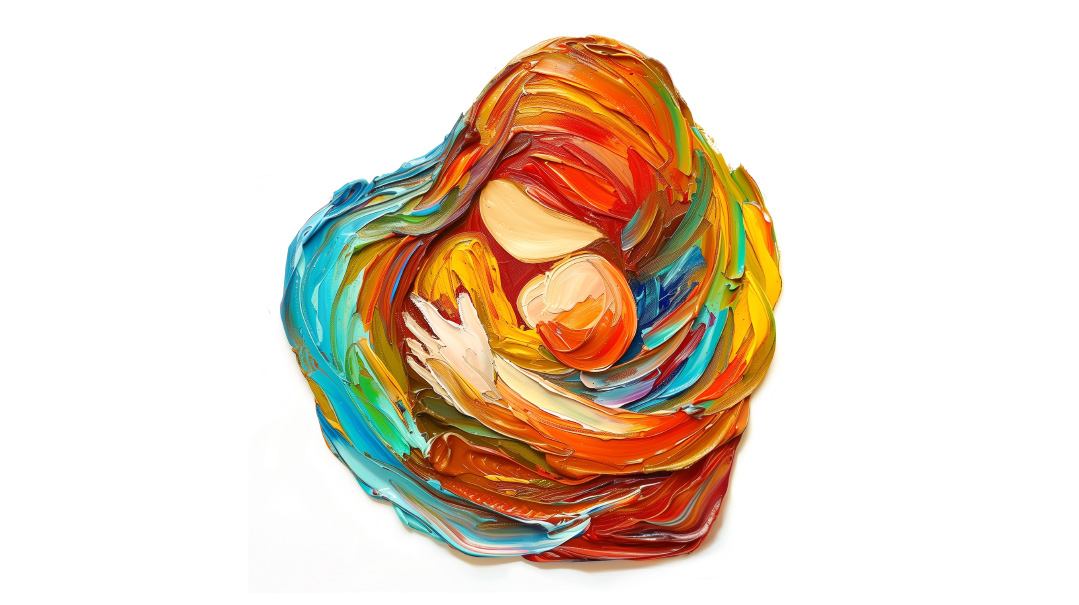Call it a Night
| September 6, 2022What causes bed-wetting, how to deal with its emotional toll, plus how to help your child wake up clean and dry

Yaakov is my fourth, so when it came time to potty train him, I wasn’t worried,” says Malka. “I had my method down pat. Dedicate a few days solely to establishing daytime training, then move on to night training. After a few accidents and a few weeks, the task is complete. People warned me that boys sometimes have a harder time with potty training, but I didn’t think much of it.”
The first part of the process went relatively smoothly for Yaakov, though it did take longer than Malka’s daughters. Then came night training.
Despite months of trying, Yaakov couldn’t stay dry through the night. “I figured he just wasn’t ready, so we took a break,” Malka says. She tried again six months later, but none of her methods worked. A year later, they made a third attempt but were just as unsuccessful.
Is Something Wrong?
When nighttime potty training doesn’t go as planned, it can unnerve (and exhaust) even the most experienced of mothers: “Why isn’t this working? Is this normal? Is there something wrong with my child?”
Pediatrician Dr. Jenny Berkovich, who regularly sees bed-wetting patients, is a voice of calm for frantic parents. “Technically, most kids should be able to stay dry through the night starting at age five. But it’s very common to see kids much older than that still requiring pull-ups at night,” she says. “In fact, it’s estimated that 10-15 percent of seven-year-old children still struggle with bed-wetting. The condition is twice as common in boys as in girls.”
What a pediatrician or pediatric neurologist will try to identify during an initial consultation is which type of bed-wetting the child is struggling with. The first type is called primary nocturnal enuresis, which describes a child who has never had proper control at night and consistently wets the bed. The second type is called secondary nocturnal enuresis, which is when a child who previously did have control suddenly starts wetting the bed again. Secondary nocturnal enuresis is often due to a specific cause, such as diabetes, urinary tract infections, trauma, or stress.
“The most common cause of primary nocturnal enuresis is ‘normal variance’ — meaning nothing is actually wrong, and the child just needs more time to become fully dry at night,” says Dr. Berkovich. “It’s not clear why some kids reach this stage earlier, but we do see bed-wetting run in families. I often find that when one or both parents struggled with this issue as children, their kids may experience bed-wetting for the same period of time.”
The role that genetics play in bed-wetting is backed by studies. If one parent suffered from recurring bed-wetting as a child, the risk of their child struggling with it is 40 percent. The chance of bed-wetting goes up to 70 percent if both parents struggled with bed-wetting.
While the exact cause of bed-wetting is unknown, it usually comes down to a delay in development — either of the kidney (which produces too much urine at night), the bladder (which becomes too full quickly at night), or the brain (which is unable to send the message to the body to wake up in time).
Some children are especially deep sleepers, and when the brain isn’t developed enough to rouse a child from sleep, this combination results in bed-wetting.
“It’s important to rule out any underlying causes, and this is usually done by the pediatrician taking a good history,” says Dr. Berkovich. “Sleep disorders such as obstructive sleep apnea can be associated with bed-wetting and once those issues are addressed — sometimes with medication or even surgery to remove the tonsils — the bed-wetting resolves. Other common causes are constipation, bladder dysfunction, or psychological factors like ADHD.”
Some medications can increase the chances of bed-wetting. In very rare cases, the problem can be attributed to other medical conditions, such as bladder or kidney disease, diabetes, or a neurological disease.
One of the most common triggers for secondary enuresis is stress, which includes changes such as moving to a new community, or shifts in the family such as divorce or the loss of a loved one. If a child, especially a teenager, suddenly starts wetting the bed, it’s important to rule out the possibility that the child is suffering some type of abuse.
In such cases, once the stress-causing event is addressed and handled, the bed-wetting usually stops.
Staying Dry and Sane
Batsheva started potty training her oldest, Temima, at the age of two and a half. Both day and night training went smoothly. But a year later, Temima started wetting the bed. Everyone assumed it was because of emotional stress, since Temima was about to become a big sister. But that didn’t resonate with Batsheva.
She noticed that her daughter often seemed constipated. And when she observed Temima sleeping, she realized that every time her daughter released gas, it caused her to also wet the bed. After the constipation was treated, the bed-wetting stopped immediately.
Malka’s experience with Yaakov was far more exasperating. “When my son turned five and a half, we decided to pull the plug and just get rid of pull-ups. The problem was that each morning, Yaakov woke up wet and embarrassed. Every morning, I had to throw another load of linens into the wash, and also try to make Yaakov feel better.”
Further complicating the issue was that Yaakov shared a bedroom with his older brother, who complained bitterly about the “gross smell” every morning. There was also no privacy for Yaakov when he did have an accident. Yaakov’s confidence began to plummet when he saw he wasn’t succeeding at staying dry.
“I took him to the pediatrician to rule out anything serious,” Malka says. “I limited his fluids two hours before bed. I tried incentives like a sticker chart. When he turned six and was still wetting the bed on a consistent basis, I took him for reflexology. I took him to a chiropractor. I was becoming desperate. I scheduled meetings with his teacher to make sure the bed-wetting wasn’t caused by any type of bullying or, G-d forbid, abuse.
“In the end, we had become obsessed with figuring it out, and it was adding more stress for Yaakov and our whole family. I was still washing linens almost every day, but also wiping away my son’s tears who couldn’t understand what was wrong with him.”
Kids often feel shame and embarrassment, as well as frustration, because of their inability to control their own bodies. For school-age kids, bed-wetting can be especially challenging because of the social consequences of avoiding sleepovers.
Tamar Varon, a child and family therapist in Israel, encourages parents to prompt a conversation about the topic so kids can share their feelings. “Try to be as sensitive as possible,” she advises. “It should be a private conversation without other siblings present. You want to strike a balance between not ignoring the issue, but also discussing it in a way that doesn’t involve shame or embarrassment.
“To avoid making a big deal about it, speak in a simple straightforward manner and be mindful of your facial expressions. Most importantly, listen to your child. Ask how they’re feeling. Reassure your child that they will grow out of the bed-wetting stage.”
What to Do?
Practically, what steps can parents take to help their child wake up dry?
“My general approach to bed-wetting is ‘do nothing’ because over 99 percent of neurotypical children grow out of it by age 15, with no intervention at all,” says Dr. Berkovich. “But if a family is very motivated, I usually start with recommending limiting nighttime fluid intake two hours before bedtime, limiting dairy products four hours before bedtime, and using the bathroom prior to going to sleep.
“Medications often are used in the treatment of bed-wetting to help treat, rather than cure, the problem while awaiting natural resolution,” adds Dr. Berkovich. “The first-line choice is usually desmopressin. This medication works to reduce urine output overnight. Desmopressin either works or it doesn’t.
“Because the drug controls only one factor, not all patients respond to this treatment alone. Relapse after short-term treatment is common, but it’s a good option to try for about six months, especially if there is an overnight activity planned like a sleepover or trip. Oxybutynin is another common medication that’s used, and sometimes the two medications are used together.”
When Malka inquired about medication, her pediatrician said they could try it — but she was first advised to give it more time. “As hard as it is to wait, time is your friend,” affirms Dr. Berkovich. “My first recommendation to parents dealing with this issue is to have patience.”
Malka resigned herself to continue washing the sheets, and told Yaakov to just try his best, but it was okay if he wet the bed. She also started a sticker chart for Yaakov’s older brother to work on his sensitivity.
Two months later, Yaakov started to wake up dry a few nights a week. “From then on, there was gradual, but positive improvement,” says Malka. By the time Yaakov was eight, he was fully dry at night.
“I think he just needed more time. Being hyper-focused on stopping the bed-wetting certainly did not help,” Malka admits.
When it came time for Chani to start potty training her first child, she knew because of her own family history of bed-wetting, plus her husband having suffered from childhood bed-wetting, that the odds weren’t stacked in their favor.
“Daytime training went fairly smoothly, but I didn’t try too hard with night training because I knew it was likely to be a struggle,” Chani says. “Typically, kids will have some wet nights and some dry ones, but my son wet the bed every single night. So we just kept using pull-ups. Because we knew it was genetic and were prepared for it, we were very relaxed and positive about the whole thing. We told him, ‘Tatty went through this too. It’s okay.’ ”
The only question weighing on Chani’s mind was when her son would outgrow the issue. “There was a fear of how long this would take, and how it would affect my son emotionally. Would he miss out on social events? But again, because it was genetic, we knew there wasn’t anything wrong.”
By age seven and a half, her son still wasn’t dry at night. Chani consulted with her pediatrician, who said a low dosage of antidepressants works for bed-wetting, but she wasn’t comfortable with that. Chani ended up calling a medical supply company in Lakewood, and they recommended the Malem bed-wetting alarm. Her son followed the alarm’s 12-week program, and it worked. By the age of eight, he was fully trained at night.
Chani used the same Malem alarm for her younger son, who was five at the time. It also worked and in just two weeks.
“Bed-wetting is a stage, and it will pass,” Tamar reminds her clients. “The most important thing is that a child gets through it with his emotional and mental health intact. The support — and nonreactive responses of their parents — is what will get them through it.”
Quick Cleanup
Dealing with bed-wetting is often a long-term goal. Here are some ways to keep things pleasant in the interim:
1. Layer a number of mattress protectors and sheets. First place a mattress protector down on the mattress and then put a sheet on top. Repeat this step three times (kind of like making a lasagna). This way, you only have to remove sheets, not add them, and you can protect the mattress.
2. Keep a laundry hamper next to the child’s bed so he can place the wet linen directly in the hamper. Some floors, such as wood, can get ruined from wet linen.
3. If the mattress did get wet, first blot it with a dry towel to soak up any urine or you can use a wet/dry vacuum. Make a cleaning solution of half warm water and half vinegar, and blot the mattress with the solution. Once that’s dry, sprinkle baking soda and vacuum it up a few hours later.
4. Have a lot of patience and compassion. Remember, as frustrating as it is to have to clean up a soiled bed, it’s usually more emotionally troubling for the child him/herself. Even if you have to fake it, pretend it’s no big deal!
(Originally featured in Family First, Issue 809)
Oops! We could not locate your form.







